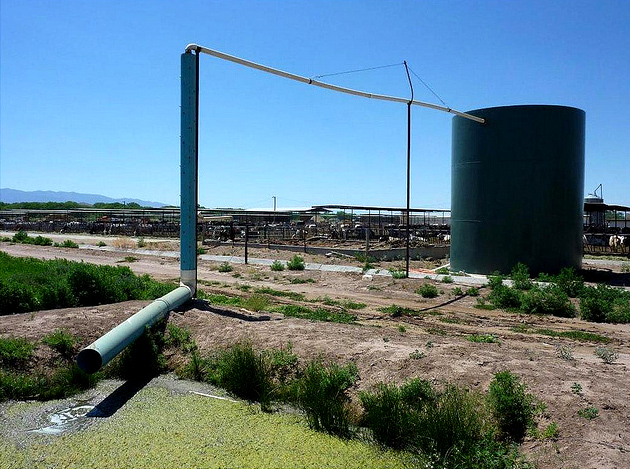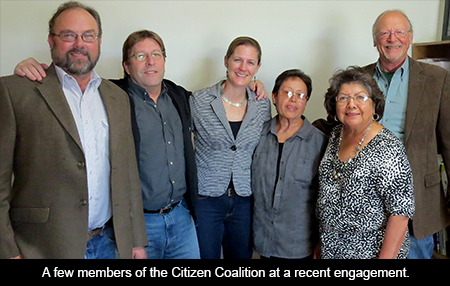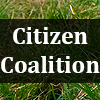
Less than four weeks into her term, Governor Susana Martinez had to be reminded by the New Mexico Supreme Court that, “Nobody is above the law.” The reason: the Governor had tried to prevent recently approved dairy rules, among other new environmentally protective rules, from going into effect.
The Governor’s Administration is still dodging the rules in order to help her industry friends. This time, the Administration is helping the dairy industry avoid taking common sense steps that would prevent their cows’ waste from continuing to contaminate New Mexico’s precious groundwater.
The New Mexico Environment Department (NMED) recently announced plans to hold separate private Technical Advisory Board meetings to discuss drafting new dairy discharge regulations. The NMED scheduled two meeting dates, but said each day would have one separate, private meeting with the dairy industry and one with the Citizen Coalition – a coalition of community and environmental groups that support the current dairy rules.
If the NMED wanted to meet separately with the dairy industry and the Coalition, they didn’t need to organize a Technical Advisory Board – or Technical Work Group as they also call it – and spend months to find dates when all participants could meet.
In a letter delivered May 14th to NMED Secretary Ryan Flynn, the Citizen Coalition informed Mr. Flynn that they would not participate in this process. Although the NMED’s response, dated May 15th, repeatedly refers to the meetings as a chance for “open dialog”, having separate, private meetings is not a dialog.
The Coalition supports a lawful, public rule making process. The Legislature understood this when it required that NMED obtain stakeholder advice in forming dairy regulations and use the best scientific and technical means for preventing pollution by the dairy industry in New Mexico. Although NMED states that it was not required to continue that process for this third round of dairy rule making, they chose to establish a Technical Advisory group. There are required statutory procedures that define how the NMED convenes an advisory committee – procedures used recently to have technical and stakeholder processes for creating rules.
The NMED stated in their response on May 15th that they believe the joint meetings would amount to “an adversarial forum” because of the Coalition’s attitude. However, all of us in the Coalition have attended joint meetings on the dairy rule over several years without acrimony and we were able to produce an imperfect, but acceptable, compromise dairy rule.
The dairy rules were mandated by the Legislature in 2009. After almost two years of public meetings and a long stakeholder process with all parties, the Water Quality Control Commission (WQCC) approved the dairy rules in December 2010. In January 2011, Governor Martinez tried to block them and lost, so the dairy industry went to court to stop them. The parties agreed to a negotiated settlement in late 2011. On that basis, the court dismissed the case with prejudice. The WQCC then accepted all the stipulations of the settlement on its terms. The WQCC approved the amended rules that came out of the settlement. The new rules went into effect in December 31, 2011.
There shouldn’t be a need to discuss changing these recent rules at all, since all parties stipulated to the terms of the settlement. However, we know from documents obtained through the Inspection of Public Records Act (IPRA) that NMED and the dairy industry have been meeting privately since early 2012 to discuss how to change the rules.
In this long and time-consuming process to carry out a Legislative mandate to create industry-specific rules – which the industry asked for but seems unwilling to accept – who is being adversarial? The only people defending the rules they agreed to are the members of the Citizen Coalition.
NMED data indicates that 57% of all dairies have polluted the groundwater with nitrates; if other regulated contaminants are included, the percentage is higher.
NMED halted the issuance of dairy permits when the Legislature began considering dairy industry-specific rules in 2009. That means most dairies in New Mexico are operating on long-expired permits. These permits do not meet current requirements and water protection rules. Rules remain unenforced while the dairy industry continues efforts to weaken the regulations they asked for in the first place and to which they agreed in the settlement of their appeal.
Susana Martinez campaigned on a pledge of transparency, open government, and an end to crony political decision-making. What we see here is one of her agencies striving for an opaque, closed governmental process driven by cronyism. Governor Martinez, what happened?

Citizen Coalition:
Amigos Bravos
Sierra Club, Rio Grande Chapter
Socially Responsible Agricultural Project
Represented by the New Mexico Environmental Law Center
(Photo by USDA)



Responses to “What Happened to Transparency and Openness?”